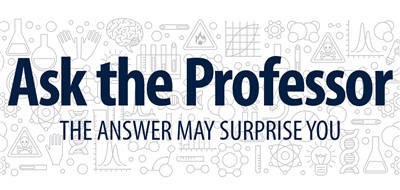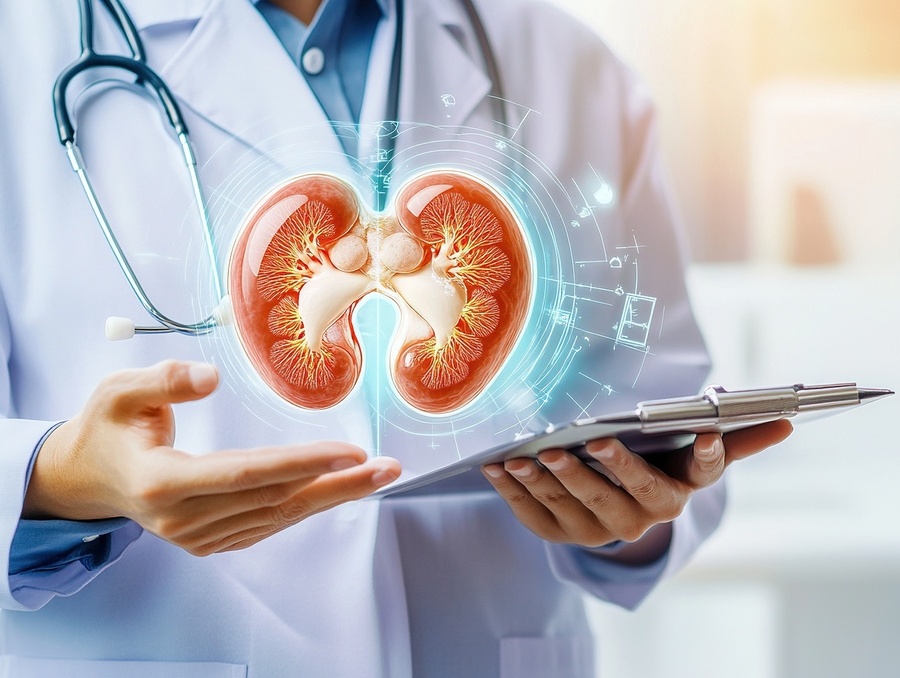
Find more answers here!
In this Ask The Professor Q&A, David St-Jules, a registered dietitian and assistant professor in the Department of Nutrition, and Dr. John Westhoff, associate professor in the School of Medicine and School of Public Health, answer common questions about kidney function, chronic kidney disease and the role of nutrition in protecting kidney health.

For most of human history, the big problem with food was getting enough of it. Our bodies are built to survive periods of food scarcity. However, like a polar bear in the desert, we are poorly equipped to handle the abundance of convenient and highly accessible food in much of the world today.
Despite its convenience, the modern food system has brought with it a new set of health problems, many of them silent and slow-moving, such as chronic kidney disease.
To help you understand how changes in our food environment affect kidney health, David St-Jules, a registered dietitian and assistant professor in the Department of Nutrition, and Dr. John Westhoff, professor of internal medicine and assistant dean for student research at the University’s School of Medicine, answer common questions about kidney function, kidney disease and how diet can help maintain healthy kidneys.

Q: What do kidneys do for the body?
Your kidneys act like your body’s maintenance crew, keeping everything running smoothly. As blood flows through them, they remove waste and adjust fluids and chemicals. If you eat too much salt or drink too much fluid, your kidneys react quickly to remove the excess. When they stop working, fluid, acid, waste, electrolytes and other components of blood build up, and you get sick fast.
Q: What causes kidney disease?
Many people think kidney disease just “happens” by genetics or bad luck. In fact, about two-thirds of kidney failure in the U.S. is caused by diabetes and high blood pressure, conditions often caused, or worsened, by the way we eat.
Q: How common is chronic kidney disease?
A: One in seven U.S. adults has chronic kidney disease, but fewer than one in seven of those with the condition are aware of it. Because early stages may not cause symptoms, many people are not diagnosed until the disease is well advanced.
Q: How do you know if you have kidney disease?
We are born with more kidney function than we need, enough to donate one kidney and still be healthy.
That’s good news.
The bad news is that kidney disease can progress silently for years. You can lose more than half of your kidney function before noticing any changes. At that point, reversing the damage is unlikely, and care focuses on managing complications and slowing the onset of kidney failure.
Q: Who should get their kidneys checked?
If you have or are at high risk of diabetes or high blood pressure, ask your doctor about your kidney health. Check with your health care provider or insurance company if you qualify for counseling with a registered dietitian to help protect your kidneys.
Q: Can chronic kidney disease be prevented?
A: Yes. Prevention is the best remedy. Catching the condition early and making simple changes to your diet can go a long way in lowering your risk of complications and kidney failure.
Q: What role does diet play in managing kidney disease?
A: While diet is not a cure, it is an important part of treatment. Eating the right foods can slow down the disease and reduce complications. The best diet for each patient depends on the stage of disease, other health conditions, medications and overall lifestyle.
Q: What should patients do before making dietary changes?
A: Always talk with your primary care provider first. Major dietary changes can affect other conditions or interact with your medications. Your provider can refer you to a renal dietitian, who can create safe, sustainable meal plans tailored to your medical needs and lifestyle.
Q: Why is it hard to find reliable kidney diet information online?
A: Dietary needs for early stage kidney disease can differ from those for advanced disease, and that isn’t always clear online. Our research found much of the available advice, even from reputable sources, can be contradictory, outdated or overly restrictive.
Key takeaways for protecting your kidney health
The best approach is prevention. Regular check-ups, early detection and modest changes to your diet can greatly reduce the risk of complications and slow the progression of chronic kidney disease. Working with your health care team, including a registered dietitian, can help you take practical steps to protect your kidneys and maintain your overall health.
















